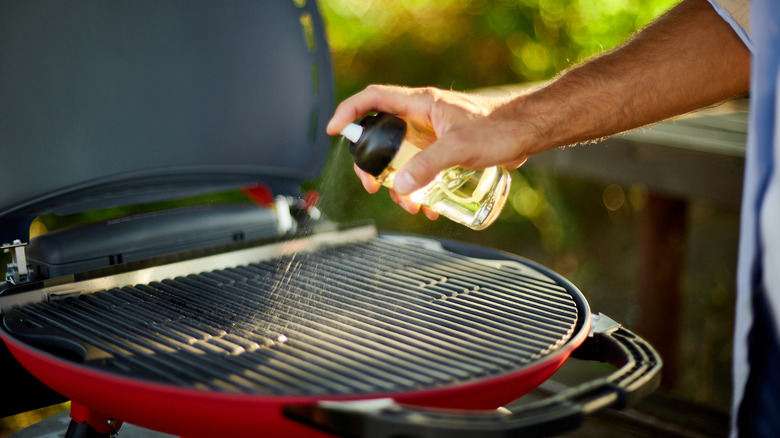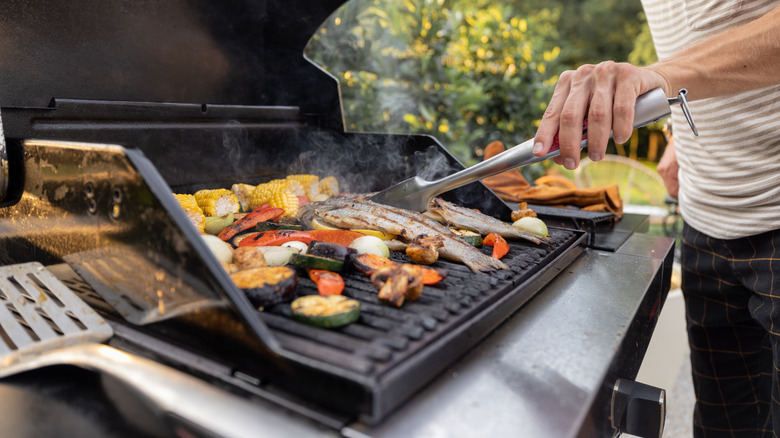The Reason You Should Oil Your Food, Not Your Grill
If you're a careful cook who worries about cleanup, you may oil your grill as a good grilling hack to prevent sticking. The reality is, there are a few reasons you should reconsider this step.
Oiling your grill is pretty common advice online, and makes intuitive sense: We grease our pans and baking sheets to both prevent sticking and add flavor to our food, so that logic should transfer over to the grill. It's especially appealing to anyone who's ever had to scrape off hunks of blackened meat that are seemingly permanently seared to the grill grates, which is both frustrating and messy. But, according to Dustin Green, director of the Weber Grill Academy and Head Grill Master, oiling the grill is actually a common mistake that you should avoid. Instead, you should give oiling your food a try.
Speaking to Tasting Table, Green told us that not oiling the grill is less about what you are doing to your grates, and more about what you aren't doing to your food. Oiling the meat and veggies makes it easier for salt and spices to cling, and rubbing your food in oil also helps with browning through the process of caramelization. Putting the oil on your food will help reduce sticking while grilling just as much as oiling the grates themselves, but when you do the latter, you lose out on a lot of the beneficial things oil can bring to your meal.
Oil helps the flavor of your grilled food
Oil is a fat, and even less flavorful neutral oils can still enhance taste. If you are oiling your grates instead of your food, only the parts getting that extra flavor boost are of course the ones that are directly touching the grill. Like salt, fat enhances everything it touches, absorbing flavors and bringing out the full potential of your ingredients. Most spices are also fat soluble, which means that oil can help them release different flavor notes and intensify existing ones. If your barbecue rub isn't getting the benefit of a little bit of fat, you aren't making the best ribs or chicken you can.
There are some other practical reasons to avoid oiling the grates of your grill. Excess oil on your grates can drip on the heat and lead to flare-ups. Green also says that the oil can run down into the grill, replacing your sticky kind of mess with a new, greasy one. Grills run very hot, and oil on your grates can easily go past its smoke point and give off acrid flavors. The high heat of grills can even degrade and break down oil fast enough that it will make your grates more sticky as the oil carbonizes on the metal. If you're careful, oiling your grates won't really hurt — but with the better option to oil your food, there's not much reason to do it either.

